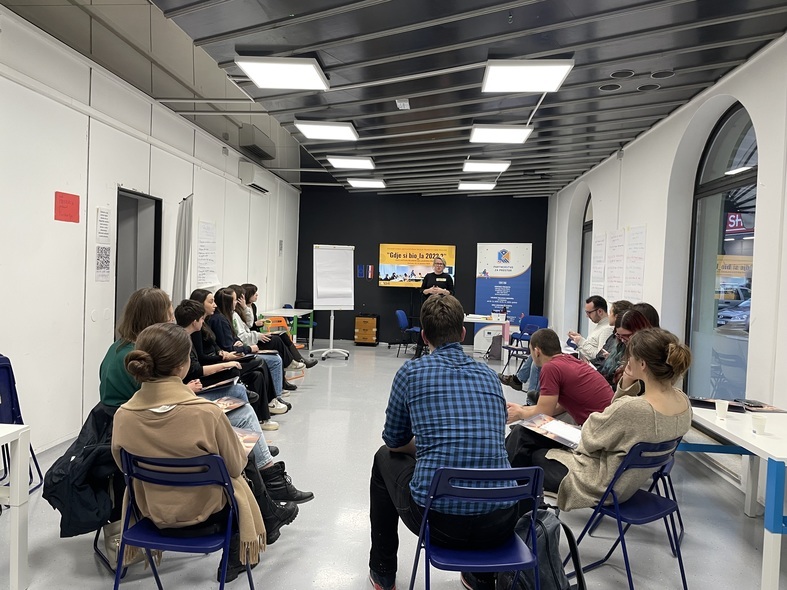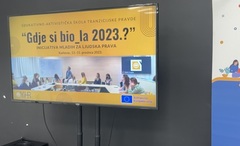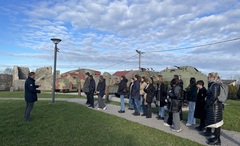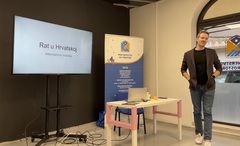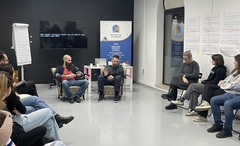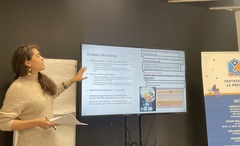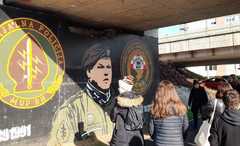From December 13 to December 15, 2023, we conducted the educational-activist school of transitional justice "Where were you in 2023?" in Karlovac for seventeen young people from Croatia.
The school program was designed to provide a platform for information, discussion, and critical reflection on events that marked the post-war period for representatives of the generation born after the wars of the nineties. In order to design and adapt a high-quality program, detailed oral and written evaluations from previous schools were incorporated into the creation of this year's program.
During the three-day program, the topics covered fundamental concepts related to transitional justice, the relationships of institutions and power divisions in pluralistic democracies, historiography, and the aftermath of the wars in Croatia in the nineties, narrative construction, and the role of young people in building a more inclusive society concerning the unresolved legacy of the wars of the nineties.
Our educational programs, including this year's school, are recognized for their interdisciplinary and diverse methodological approaches to the acquisition and development of knowledge for participants.
The educational-activist school of transitional justice "Where were you in 2023?" included lectures by experts from domestic and international universities, as well as practitioners and activists engaged in the field of building an inclusive culture of memory and working with young people. Interactive workshops allowed participants to better understand and apply the knowledge gained, a visit to the Museum of the Homeland War in Karlovac - Turanj, and formal and informal forms of commemorating places of remembrance of the sufferings in Karlovac during the nineties were also part of the program. Additionally, a Living Library provided participants with stories from contemporaries who experienced war in Karlovac during their childhood.
Participants shared their satisfaction with what they learned through written and oral evaluations, and some of their comments are presented below:
"I learned a lot about the Homeland War; my knowledge was incomplete until now. Even when I studied history, much remained unclear to me about the wars of the nineties."
"The community I belong to is homogeneous; this kind of school is very important for my academic development and refining ideas."
"The school experience will help me a lot in building critical thinking about topics that, as a high school student, affect my everyday life, and not only mine but also the life of my parents."
"It's not the first time I've dealt with this issue; it was very intense, but I'm not exhausted. Discussions are incorporated – it's important for me to hear even what is not in line with my opinion."
"The school was extremely interesting and well-conceived. I think there should be more topics like these that help us understand certain events, phenomena, or processes in society more deeply."
"I learned a lot about the nineties from many different approaches; that is very important to me!"
"I hope there will be more lectures and workshops like this. I am very satisfied with the organization and the choice of topics offered by the lecturers. I think it is necessary to visit different locations from which we can learn more about such topics."
"I liked the activist part of the school; I would highlight it as a very instructive experience."
In conclusion, we would like to express special thanks to our colleague Isidora Ećim, who visited our school on behalf of the organization Kvart from Prijedor (Bosnia and Herzegovina), as well as the association Carpe Diem from Karlovac, in whose Social Center Prostor(i)ja we held the three-day school.
Financed by the European Union. The presented views and opinions are those of the authors and do not necessarily coincide with the views and opinions of the European Union or the European Executive Agency for Education and Culture (EACEA). Neither the European Union nor EACEA can be held responsible for them. Program Impact4Values is co-funded by the Office for Cooperation with NGOs of the Government of the Republic of Croatia.
